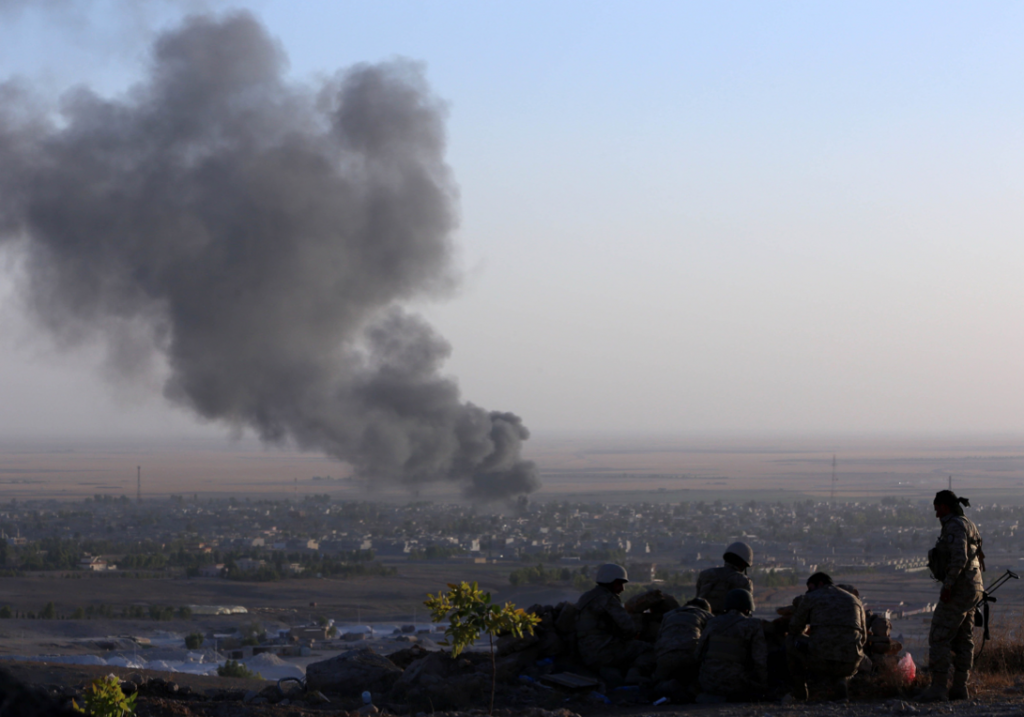by Ranj Alaaldin
It is no coincidence that country’s most stable areas are those where security and governance are in the hands of locally supported groups. This piece was originally published by the Independent on Sunday 17 August 2014.

Since ordering US airstrikes against jihadist group the Islamic State of Iraq and Syria (who now call themselves the Islamic State, or IS) in Iraq’s Kurdistan region, President Obama has gone one step further by arming Kurdish forces and helping them in their fight against the group.
The UK is also expected to provide the Kurds with arms and has already deployed SAS forces to the Kurdistan region as well as a fleet of Chinook helicopters to airlift Yazidi refugees besieged on Mount Sinjar, where they have had to choose between dying of dehydration or descending and facing inevitable slaughter at the hands of Isis militants.
All this should be welcomed. The West has been relatively muted in its response since Isis took control of Mosul, Iraq’s second largest city of 2m people and other parts of Iraq’s north. It has established a self-declared caliphate in territory stretching between Iraq and Syria. Left alone, Isis will expand further; it will garner far greater resources than it currently enjoys and, as an organized, disciplined and resource-rich organisation will continue to recruit local Iraqis, Syrians and other jihadists from around the world to its cause.
The decision to become actively and directly involved in the fight against Isis acknowledges a number of realities that policymakers have for too long ignored: firstly, that the Kurds are a reliable, organized and moderate force capable of countering Islamic radicals in Iraq as well as the region; secondly, that the Kurds will declare independence sooner or later; finally, that Iraq, with or without the Kurds may disintegrate anyway.
Except, Iraq has already disintegrated. Baghdad no longer has any control over its Sunni Arab north. Its Shia-dominated government presides over the capital Baghdad, as well as the Shia south. Baghdad may still retake the north and it should be helped by the international community to achieve this but although it may do so and although Iraq could recover from the current crisis, it is unlikely to progress to such an extent that makes a recovery irreversible.
Iraq’s problems are deep-rooted. It has social as well as political problems that pre-date its outgoing and controversial prime-minister, Nouri al-Maliki, as well as the 2003 intervention itself. In other words, the end of Maliki does not mean the end of Iraq’s sectarian divide. The problem is essentially one of authority. The Iraqi state and its armed forces are seen as being Shia controlled, and therefore lack respect and recognition in the Sunni north. The Shia-dominated Baghdad government lacks the legitimacy and support to challenge militants for the hearts and minds of Sunni Arabs.
It is no surprise, therefore, that Isis has been welcomed with open-arms by Sunni Arabs in the north and has thousands of Iraqis within its ranks and continues to attract others to its cause. Defeating Isis requires accepting that the group was only able to mount its offensive and threaten the end of the state because it had active support from the local population in the Sunni Arab north.
Regionalising Iraq into different ethno-sectarian regions has been proposed in the past. It can no longer be dismissed. Sectarian conflict is no longer identified simply as a problem that came and left with the Americans, but as an Iraqi problem that will dominate Iraq for decades to come. It also works. It is no coincidence that Iraq’s most stable areas are those that are most homogeneous, where security and governance is in the hands of local actors seen as legitimate by a supportive local population, as in the case of the Kurdish north and the Shia south.
Moderate Sunni Arab actors welcome the idea of an autonomous region that can work with Baghdad and as part of Iraq. But first, Iraq’s Sunni Arab leadership must stay true to their word. They have maintained that they can and will defeat Isis once Maliki goes. They must certainly be supported in this endeavor, as the military-option in the short-term could empower and give moderate Sunni Arab forces a chance in the longer run.
In the longer-run, if Iraq is to survive then Iraqis must embrace regionalisation and accept that a unified Iraq is now a distant reality. A decentralized or regionalized Iraq is not tantamount to partitioning Iraq, which many oppose, and it might ultimately create the breathing space necessary for a unified Iraqi identity to emerge.
 Ranj Alaaldin is a Doctoral Candidate at the London School of Economics and Political Science, where he researches the history of Shia political mobilisation in Iraq. He is also a Senior Analyst at the Next Century Foundation.
Ranj Alaaldin is a Doctoral Candidate at the London School of Economics and Political Science, where he researches the history of Shia political mobilisation in Iraq. He is also a Senior Analyst at the Next Century Foundation.





